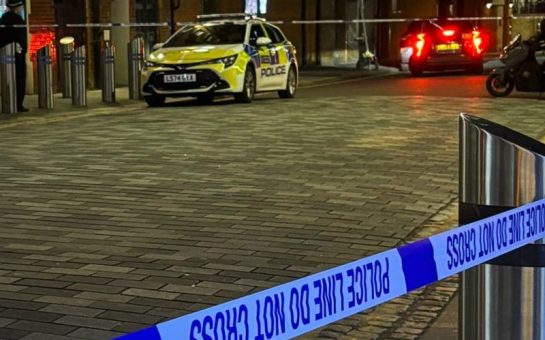The #EndSARS anti-police brutality protests in Nigeria opened the eyes of the nation, and mobilised the youth to fight for their human rights.
For Nigerians living and protesting in London, the hashtag #EndSARS is just the beginning, as it has started a wider conversation about the need for structural and political change in Nigeria.
Before lockdown, SWL attended the #EndSARS protest in London and spoke to British Nigerian Doyin Ajiboye about the need for further action.
What is SARS?
SARS stood for the Special Anti-Robbery Squad, a special branch of the Nigerian Police Force, formed in 1992.
This branch was created to combat violent crimes including robbery, kidnapping and firearms but over time, this unit came under fire due to their unlawful killings, human rights violations and other illegal activities.
Amnesty International, the world’s leading human rights organisation, published a report in June 2020 about the wrongdoings of the SARS unit, which highlighted between January 2017 and May 2020 there were at least 82 cases of torture, ill treatment and unlawful executions by the unit.
The organisation reported: “These figures reveal a pattern of abuse of power by SARS officers and the consistent failure by the Nigerian authorities to bring perpetrators to justice.
“It highlights the deficiencies in Nigerian police accountability that contribute to, and exacerbate, these violations.”
Why did the #EndSARS movement and hashtag start?
The 3rd of October 2020 was a crucial day in Nigerian history.
The catalyst for the movement came after a video was distributed across social media on this day, which showed the unprovoked murder of a man by SARS officers.
Nigerian officials later denied the accuracy of the video and arrested the man who took the video – creating more anger amongst Nigerian citizens.
Their frustrations quickly turned into action as the youth took to the streets of Lagos, organising peaceful demonstrations and protests.
They used social media to aid the movement using the hashtag #EndSARS to bring international attention to the cause.
On the 20th of October peaceful protests took place at Lekki, an affluent suburb in Lagos.
Videos spread on social media of protesters congregating at the Toll Gate. People were seen dancing, styling each other’s hair, singing the national anthem and making speeches.
What happened next shook the Nigerian community to the core.
At about 6:50pm, the Nigerian Army opened fire at the crowd of peaceful protesters.
On the 21st of October, Amnesty International reported that at least 12 protesters were killed at Lekki Toll Gate.
After word spread of the shootings, thousands of young Nigerians took to the streets for almost a fortnight, demanding justice for the victims and for the termination of the SARS unit.
Nigerian authorities still deny that the shooting took place.
What are the demands of the protestors?
Although the protests forced the Nigerian government to disband SARS, this move did not satisfy those pioneering for change.
The protesters are demanding for accountability from the Government, with no arrests having been made relating to the shooting.
After the Inspector General of Nigerian Police, Mohammed Abubakar Adamu, announced that the SARS officers would be redeployed elsewhere in Nigeria’s police system, it only undermined the disbandment.
Nigerian citizens and Nigerians abroad are demanding for a complete overhaul within all areas of the police force to end police brutality.
The original movement has now morphed into Nigerians demanding more for their community and critiquing the governments handlings of wider issues, from corruption to police reform and expressing their distrust in Nigeria’s key politicians.
What is happening in Nigeria now?
Demonstrations and protests in any form have been banned in Lagos.
According to protesters, this has also trickled into censorship of the movement on social media.
On the 20th of October the Central Bank of Nigeria filed a court order from the Federal High Court in Abuja, to freeze the accounts of 19 individuals and associated organisations.
Those in connection with the promotion of the #EndSARS demonstrations accounts have been frozen until January 2021.
This order has come into effect, pending an investigation of those accounts by the Central Bank of Nigeria.
A number of high-profile activists who have almost become faces of this movement, and have pioneered both through demonstrations and on social media platforms, have gone into hiding or left the country due to threats to their safety.




